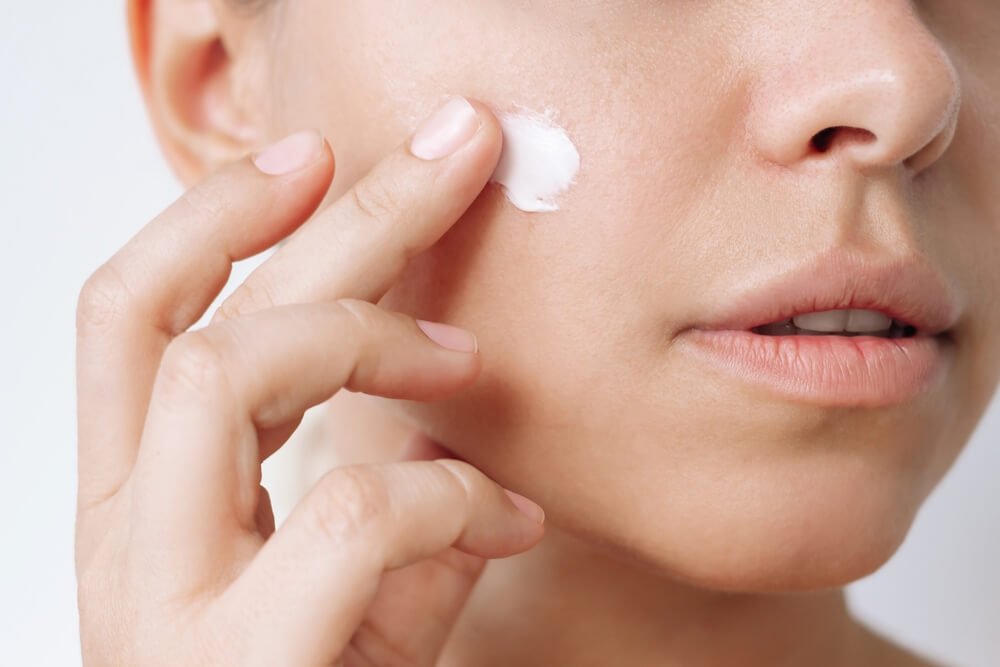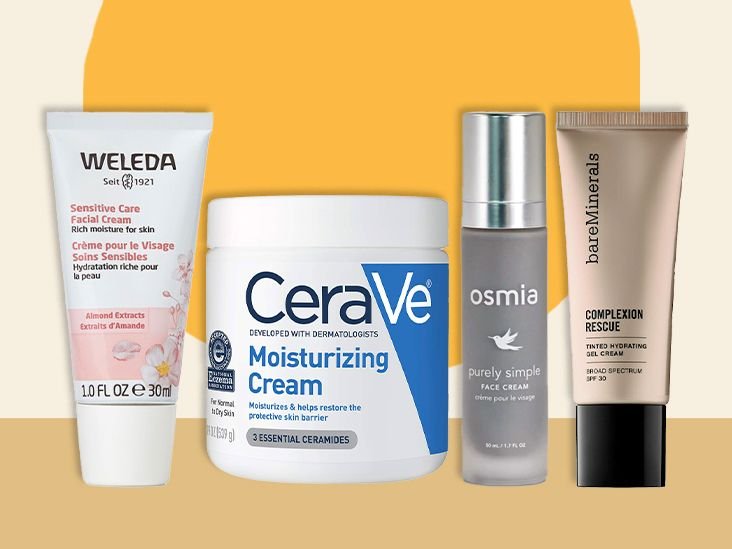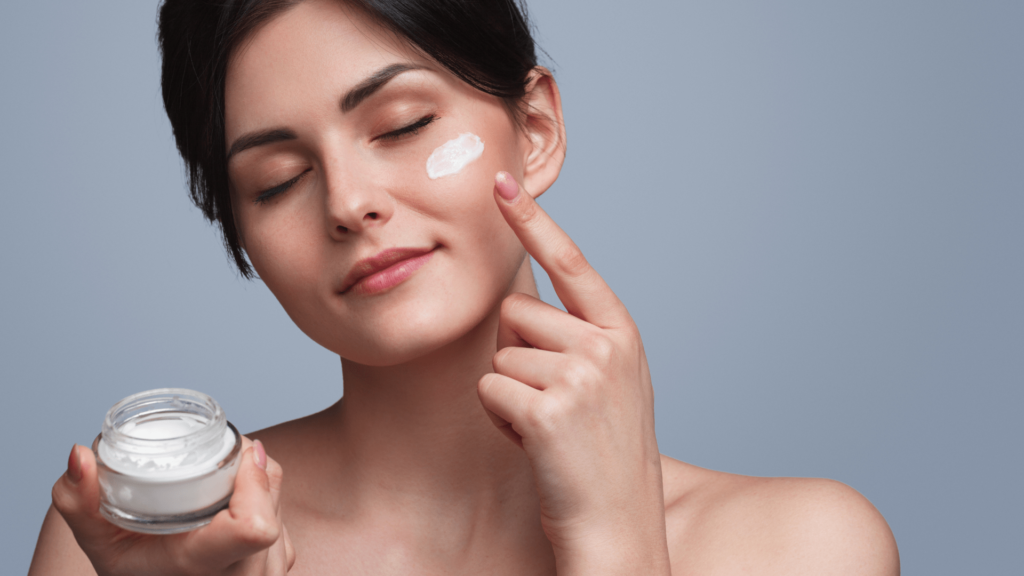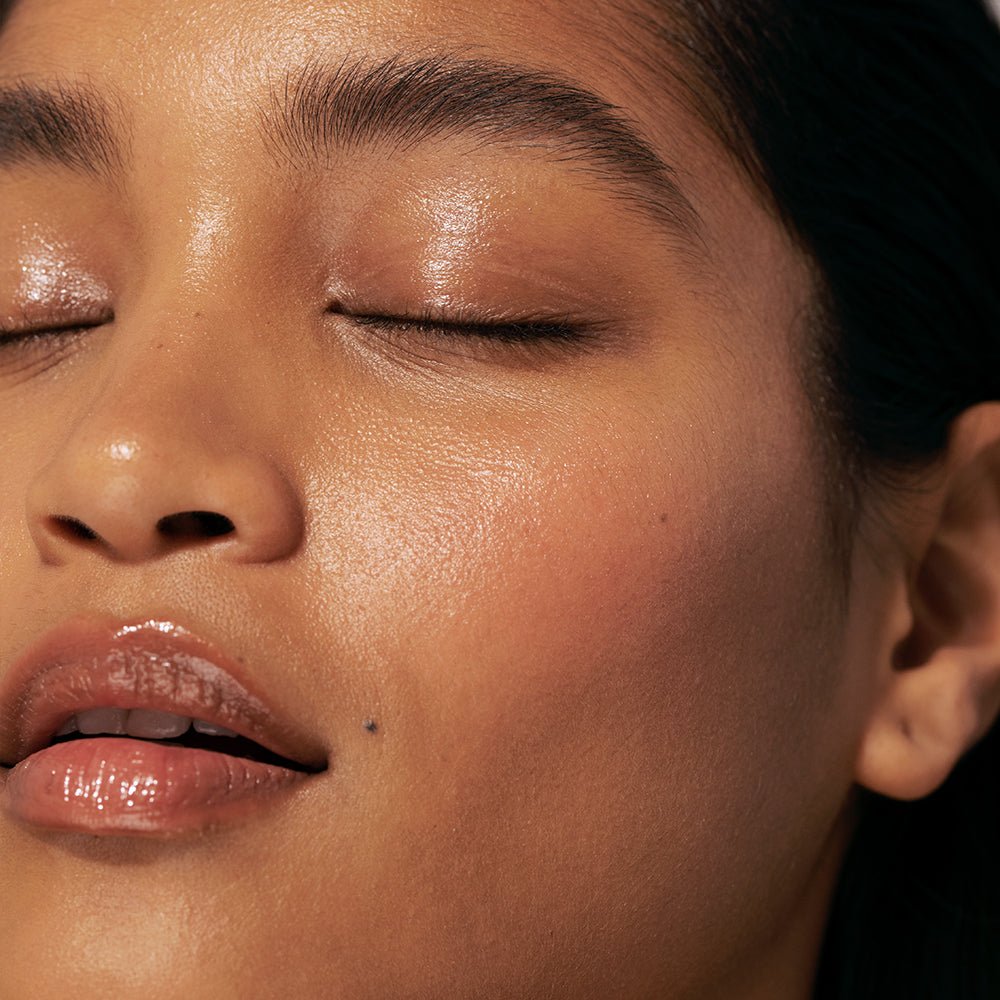Moisturize Your Skin Daily. Moisturizer Helps To Keep Your Skin Hydrated And Supple. Choose A Moisturizer That Is Appropriate For Your Skin Type.
Keeping your skin healthy and glowing is easier than you think. By moisturizing your skin daily, you can ensure that it stays hydrated and supple all day long. The key is to choose a moisturizer that is suitable for your skin type, whether it’s oily, dry, or sensitive. Don’t let your skin suffer from dehydration and dullness – give it the love and care it deserves with a moisturizer that will leave it looking and feeling revitalized. So, go ahead, make moisturizing a part of your daily routine and watch as your skin thanks you with a radiant glow.

This image is property of lionesse.com.
Why is daily moisturizing important?
Taking care of your skin is an essential part of maintaining your overall health and appearance. Daily moisturizing is a crucial step in any skincare routine because it helps to keep your skin hydrated and supple. By applying a moisturizer every day, you can prevent dryness and flakiness, and promote a healthy complexion.
Benefits of daily moisturizing
Moisturizing your skin on a daily basis offers a multitude of benefits. Firstly, it helps to prevent dry and flaky skin. Dryness can occur due to various factors such as environmental conditions, aging, and certain skincare products. By keeping your skin moisturized, you can alleviate dryness and restore its natural moisture balance.
Additionally, regular moisturizing keeps your skin hydrated. When your skin is adequately hydrated, it appears plump, fresh, and youthful. Moisturizers work by creating a barrier on the skin’s surface, sealing in moisture and preventing water loss. This hydration is vital for maintaining the elasticity and suppleness of your skin.
Prevents dry and flaky skin
Dry and flaky skin can be uncomfortable and unsightly. It may lead to itchiness, irritation, and even the development of fine lines and wrinkles. By moisturizing daily, you can alleviate these symptoms and prevent dryness altogether. The moisturizer creates a protective layer on the skin’s surface, trapping moisture and preventing it from evaporating into the air. This helps to keep your skin soft, smooth, and free of dry patches.
Keeps skin hydrated and supple
Hydration is key to maintaining healthy and radiant skin. When your skin is properly hydrated, it appears plump, youthful, and has a natural glow. Regular moisturizing ensures that your skin retains its moisture balance, preventing it from becoming too dry or too oily.
By using a suitable moisturizer for your skin type, you can nourish and hydrate your skin effectively. The right moisturizer will penetrate the deeper layers of your skin, providing it with the necessary nutrients and hydration. This will not only enhance its appearance but also improve its overall health.
Finding the right moisturizer
In order to reap the benefits of daily moisturizing, it is crucial to find the right moisturizer for your skin. With countless options available on the market, this task may seem overwhelming. However, by considering a few key factors, you can make an informed decision.
Know your skin type
Understanding your skin type is the first step towards finding the right moisturizer. The five main skin types are normal, dry, oily, combination, and sensitive. Each skin type has its own unique characteristics and requires specific care. By identifying your skin type, you can choose a moisturizer that caters to its particular needs.
Consider your skin concerns
Apart from your skin type, it is essential to consider any specific concerns you may have. For example, if you have acne-prone skin, you may want to choose a moisturizer that is oil-free and non-comedogenic. On the other hand, if you have mature skin, you may opt for a moisturizer that targets fine lines and wrinkles. By addressing your individual concerns, you can find a moisturizer that effectively meets your skincare needs.
Read product labels
When selecting a moisturizer, it is important to read product labels carefully. Look for ingredients that are suitable for your skin type and concerns. Avoid products that contain harsh chemicals or fragrances that may irritate your skin. It is also helpful to look for key words such as “hydrating,” “nourishing,” and “non-greasy” to ensure that the moisturizer meets your desired requirements.
Seek professional advice if needed
If you are still unsure about which moisturizer to choose, don’t hesitate to seek professional advice. Dermatologists and skincare specialists can evaluate your skin type and recommend the most suitable products for you. They can also provide personalized advice on how to maintain a healthy skincare routine.
Identifying your skin type
Before delving into moisturizers for different skin types, it is important to understand the characteristics and needs of each skin type. Here is a brief overview:
Normal skin
Normal skin is the ideal skin type as it is well-balanced, neither too oily nor too dry. It has a smooth texture, small pores, and is generally free of blemishes. People with normal skin typically have few skin concerns and can use a wide range of moisturizers.
Dry skin
Dry skin lacks moisture and may feel tight or itchy. It is prone to flaking, rough patches, and may have a dull appearance. Moisturizers for dry skin are typically rich in emollients and humectants, which help to replenish moisture and restore the skin’s barrier function.
Oily skin
Oily skin produces excess sebum, resulting in a shiny appearance, enlarged pores, and a tendency to develop acne and breakouts. Moisturizers for oily skin are usually lightweight, oil-free, and non-comedogenic. They help to balance sebum production and prevent clogged pores.
Combination skin
Combination skin is characterized by having both oily and dry areas on the face. The T-zone, which includes the forehead, nose, and chin, tends to be oily, while the cheeks and other areas may be normal or dry. Moisturizers for combination skin should provide hydration without exacerbating oiliness in the T-zone.
Sensitive skin
Sensitive skin is easily irritated and may react to certain ingredients or environmental factors. It tends to be delicate, prone to redness, itching, and may develop rashes or hives. Moisturizers for sensitive skin are typically fragrance-free, hypoallergenic, and gentle, soothing the skin and reducing irritation.
Moisturizers for different skin types
Once you have identified your skin type, it’s time to find the perfect moisturizer. Here are some recommendations for each skin type:
Moisturizers for normal skin
When it comes to normal skin, you have the luxury of choosing from a wide range of moisturizers. Look for lightweight formulas that provide hydration without feeling heavy or greasy on the skin. Gel-based moisturizers or lotions are often suitable for normal skin types, as they absorb quickly and leave the skin feeling refreshed.
Moisturizers for dry skin
For dry skin, opt for moisturizers that are rich in emollients and humectants. Emollients, such as shea butter or ceramides, help to soften the skin and seal in moisture. Humectants, such as hyaluronic acid or glycerin, attract moisture from the environment and bind it to the skin. Look for moisturizers that have a creamy texture and provide long-lasting hydration.
Moisturizers for oily skin
When you have oily skin, it is important to choose lightweight and non-comedogenic moisturizers. Look for oil-free formulas that absorb quickly and mattify the skin. Ingredients like salicylic acid or tea tree oil can also help to regulate oil production and reduce the occurrence of breakouts.
Moisturizers for combination skin
Combination skin requires a balancing act when it comes to moisturizers. Look for products that hydrate the drier areas without exacerbating oiliness in the T-zone. Lightweight lotions or gel-based moisturizers are often suitable for combination skin, as they provide hydration without feeling heavy or greasy.
Moisturizers for sensitive skin
Sensitive skin requires gentle and soothing moisturizers. Look for fragrance-free and hypoallergenic formulas that contain calming ingredients like aloe vera or chamomile. Moisturizers with ceramides can also help to strengthen the skin’s barrier function and reduce sensitivity.

This image is property of media.post.rvohealth.io.
Tips for effective moisturizing
Now that you have found the right moisturizer for your skin type, here are some tips for effective moisturizing:
Cleanse your face before moisturizing
Before applying any moisturizer, it is important to cleanse your face to remove dirt, oil, and impurities. Use a gentle cleanser that is suitable for your skin type and rinse thoroughly with lukewarm water. Pat your face dry with a clean towel before proceeding to apply your moisturizer.
Apply moisturizer to damp skin
For optimal absorption, apply your moisturizer to slightly damp skin. After cleansing, gently pat your face dry with a towel, leaving a thin layer of moisture on the skin. This will help to lock in the hydration provided by the moisturizer, leaving your skin soft and supple.
Use a suitable amount of moisturizer
Using the right amount of moisturizer is crucial for its effectiveness. Applying too little may not provide enough hydration, while applying too much can leave a greasy residue. Start with a small amount of moisturizer and gradually increase if necessary. Pay attention to how your skin feels and adjust the amount accordingly.
Massage the moisturizer into your skin
When applying your moisturizer, take the time to massage it gently into your skin. Use upward, circular motions to promote blood circulation and ensure even distribution. This will help the moisturizer to penetrate the skin more effectively and provide maximum hydration.
Don’t forget about your neck and hands
While your face may be the main focus, it is important not to neglect your neck and hands. These areas are often exposed to the elements and require moisturization as well. Extend your moisturizer routine to include your neck and hands, ensuring that they receive the same level of care as your face.
Reapply moisturizer throughout the day if necessary
Depending on your skin type and the environmental conditions, you may need to reapply moisturizer throughout the day. If you spend a lot of time in air-conditioned environments or have particularly dry skin, consider carrying a travel-sized moisturizer with you. Apply as needed to keep your skin hydrated and comfortable.
Additional skincare tips
Apart from daily moisturizing, there are several other skincare tips that can help you maintain healthy and radiant skin:
Use sunscreen daily
One of the most crucial steps in skincare is protecting your skin from the harmful effects of the sun. UV rays can cause premature aging, sunburns, and increase the risk of skin cancer. Apply a broad-spectrum sunscreen with an SPF of 30 or higher daily, even on cloudy days, to shield your skin from the sun’s damaging rays.
Drink plenty of water
Hydration starts from the inside. Drinking an adequate amount of water helps to keep your skin hydrated and flush out toxins. Aim to drink at least 8 glasses of water per day or more if you engage in physical activity or live in a hot climate. Keeping your body hydrated will reflect positively on your skin.
Avoid hot showers or baths
While hot showers or baths may be soothing, they can strip your skin of its natural oils and lead to dryness. Opt for lukewarm water instead and limit your shower or bath time to avoid overdrying your skin. Remember to pat your skin dry gently with a towel after bathing to retain some moisture.
Use a humidifier in dry environments
If you live in a dry climate or spend a lot of time in air-conditioned or heated environments, consider using a humidifier. Humidifiers add moisture to the air, helping to prevent your skin from drying out. This can be especially beneficial during the winter months when the air tends to be dry.

This image is property of naturewellbeauty.com.
Common misconceptions about moisturizers
There are several common misconceptions about moisturizers that should be addressed:
Moisturizers cause oily skin
Contrary to popular belief, moisturizers do not cause oily skin. In fact, using a moisturizer designed for your skin type can help to balance oil production and prevent excess sebum. Opt for lightweight, oil-free moisturizers for oily skin, and ensure that you are choosing a product that is suitable for your skin type.
Moisturizers are only for dry skin
While dry skin can greatly benefit from moisturizers, it is not the only skin type that requires hydration. All skin types, including oily and combination skin, benefit from using a moisturizer suited to their needs. Moisturizers help to maintain the skin’s barrier function, prevent water loss, and improve overall complexion, regardless of your skin type.
Expensive moisturizers are always better
The price tag on a moisturizer does not always indicate its effectiveness. There are plenty of affordable moisturizers on the market that provide excellent hydration and skincare benefits. It is important to focus on the ingredients and suitability for your skin type rather than the price. Choose a moisturizer that meets your specific needs and fits within your budget.
When to avoid certain ingredients
While moisturizers are generally safe and beneficial, there are certain ingredients that some individuals may need to avoid due to sensitivities or specific skin conditions. Here are some common ingredients to be aware of:
Fragrances and dyes
Fragrances and dyes are common irritants, particularly for those with sensitive skin. They can cause redness, itching, and other allergic reactions. If you have sensitive skin, opt for fragrance-free and dye-free moisturizers to minimize the risk of irritation.
Alcohol
Alcohol can be drying and irritating to the skin, especially in high concentrations. Avoid moisturizers that contain alcohol, as they can strip away moisture and disrupt the skin’s natural barrier. Look for alcohol-free alternatives that provide hydration without compromising the skin’s balance.
Heavy oils
While some oils can be beneficial for certain skin types, heavy oils can clog pores and lead to breakouts. If you have oily or acne-prone skin, opt for lightweight and non-comedogenic moisturizers that won’t contribute to excess oil production or clogged pores.
Silicones
Silicones are often used in skincare products to create a smooth and silky texture. While they are generally safe, some individuals may find them too occlusive or experience sensitivity to these ingredients. If you have sensitive or reactive skin, consider avoiding moisturizers that contain silicones.
Parabens
Parabens are preservatives commonly used in skincare products to prevent bacterial growth. Some individuals may have concerns about their potential health risks. If you prefer to avoid parabens, look for moisturizers that are labeled as “paraben-free” or opt for natural alternatives.
Sulfates
Sulfates are cleansing agents often found in facial cleansers but can also be present in some moisturizers. They can be drying and irritating, especially for those with sensitive or dry skin. Look for sulfate-free moisturizers to ensure a gentle and non-stripping formula.

This image is property of www.cerave.com.
Homemade moisturizer alternatives
If you prefer a more natural approach to skincare, there are several homemade moisturizer alternatives that you can try. Here are a few options:
Coconut oil
Coconut oil is a popular natural moisturizer that is easily absorbed by the skin. It is rich in fatty acids that help to nourish and hydrate the skin. However, please note that coconut oil may not be suitable for all skin types, particularly those with oily or acne-prone skin, as it can potentially clog pores.
Shea butter
Shea butter is derived from the nuts of the shea tree and is renowned for its moisturizing properties. It is rich in vitamins and fatty acids, making it highly nourishing for the skin. Shea butter is suitable for dry and sensitive skin types and helps to soothe and hydrate.
Aloe vera gel
Aloe vera gel is derived from the leaves of the aloe vera plant and has been used for centuries for its healing and moisturizing properties. It is soothing, hydrating, and suitable for all skin types, including sensitive skin. Aloe vera gel can be applied directly to the skin or used as an ingredient in homemade moisturizer recipes.
Olive oil
Olive oil is a kitchen staple that can also double as a moisturizer. It is rich in antioxidants and healthy fats, making it an excellent choice for dry and mature skin. However, be cautious when using olive oil on oily or acne-prone skin, as it may exacerbate oiliness.
Remember to patch test any homemade moisturizer alternative before applying it to your face to ensure that you do not have any adverse reactions. Additionally, store these homemade products in a cool, dark place to prevent spoilage or degradation.
Conclusion
In conclusion, moisturizing your skin daily is a fundamental aspect of maintaining its health and appearance. By incorporating a moisturizer into your skincare routine, you can prevent dryness and flakiness, and promote hydrated and supple skin. Remember to choose a moisturizer that is appropriate for your skin type and consider any specific concerns you may have.
Finding the right moisturizer may take some trial and error, but by understanding your skin type and reading product labels, you can make an informed decision. Don’t forget to follow the tips for effective moisturizing, such as cleansing your face before applying moisturizer and massaging it into your skin.
In addition to daily moisturizing, practicing good overall skincare habits, such as using sunscreen, drinking plenty of water, and avoiding hot showers, will further enhance the health and appearance of your skin. Be mindful of common misconceptions about moisturizers and learn to identify ingredients that may not be suitable for your skin type.
If you prefer a more natural approach, there are homemade moisturizer alternatives to explore, such as coconut oil, shea butter, aloe vera gel, and olive oil. However, always patch test and consult with a dermatologist if you have any concerns or specific skin conditions.
Consistency is key when it comes to daily moisturizing. Take care of your skin every day, and your efforts will be rewarded with a healthier, more radiant complexion. So, embrace the habit of moisturizing and enjoy the benefits of hydrated, supple skin!

This image is property of www.shanidarden.com.

